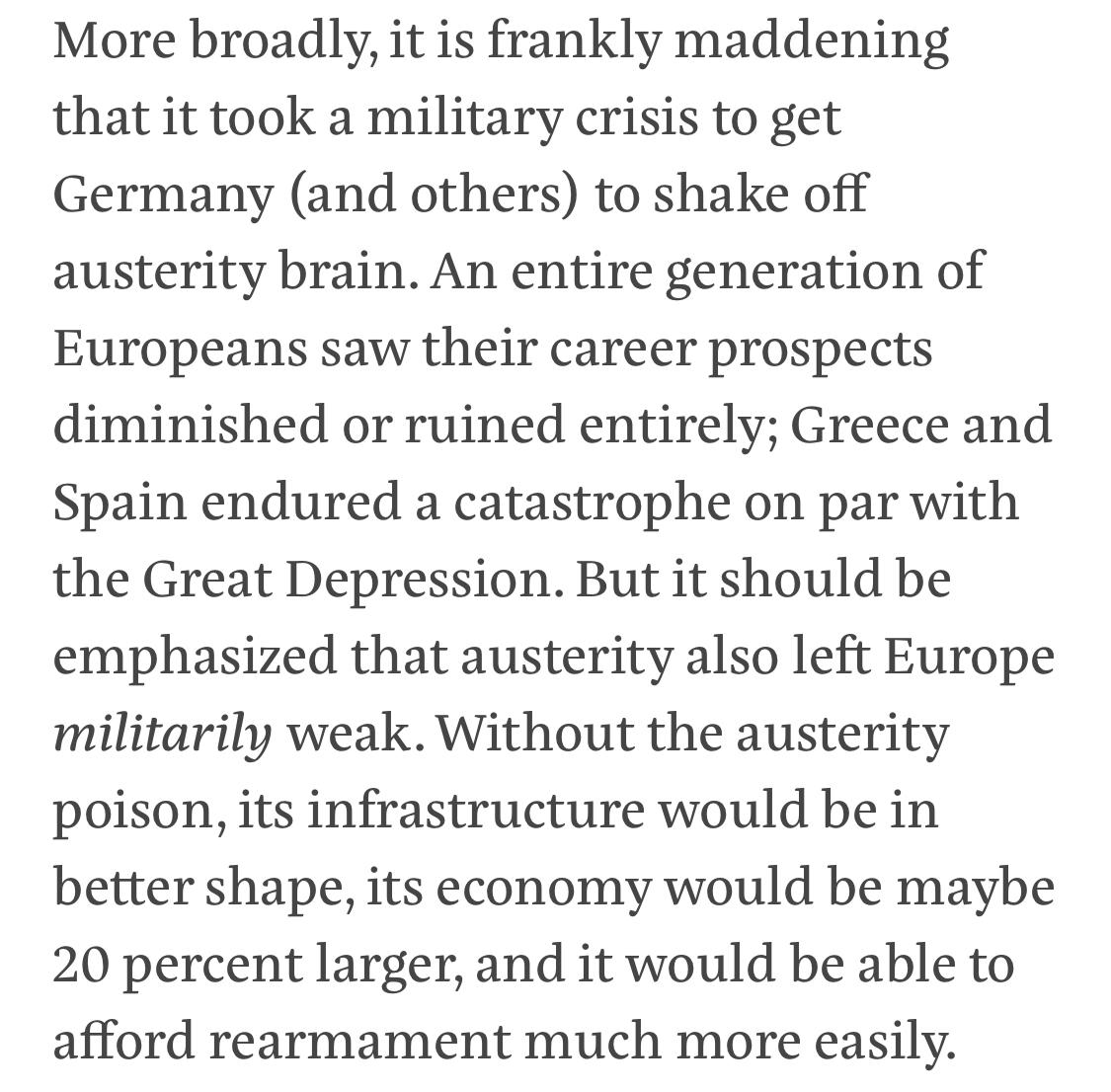"The economic problems we face are serious, but this is not a serious way to address them." @rajivsethi https://rajivsethi.substack.com/p/reciprocal-tariffs
here's a handy heuristic!
when a guy says "They're eating the dogs, the people that came in, they're eating the cats…They're eating the pets of the people that live there."
and in fact they are doing no such thing
maybe don't vote for them to become the most powerful person on the planet.
so who do we greet as liberators?
it's such a politically savvy play — now that you feel poorer, the prices of everything will blow up!
@econproph imposing a ten percent tariff on free costs the very steep price of free!
not only does it have the lowest tariff rates, but the penguins aren't unionized.
you gotta understand. if they hadn’ta cut a deal, they’d have had no shot at a piece of this.
from @ddayen.bsky.social https://prospect.org/economy/2025-04-03-theyre-not-tariffs-theyre-sanctions/
 Text: But countries are not alone in the boxes; corporations and industry sectors are as well. The phalanxes of lawyers and lobbyists who try to ease sanctions through their contacts at the highest levels of power now have a new target. Companies have been lawyering up for months in anticipation, while enlisting friendly politicians for the task. The White House has fielded hundreds of letters from businesses pleading their case. And it's already working.
Text: But countries are not alone in the boxes; corporations and industry sectors are as well. The phalanxes of lawyers and lobbyists who try to ease sanctions through their contacts at the highest levels of power now have a new target. Companies have been lawyering up for months in anticipation, while enlisting friendly politicians for the task. The White House has fielded hundreds of letters from businesses pleading their case. And it's already working.
so, are they gonna make liberation day a national holiday?
So, is the EU finally going to get serious about replacing US search/social/AI with their own, regulable, firms?
if you want emergency powers, create an emergency (by using the "emergency" powers you already had!)
@admitsWrongIfProven doesn’t the biting go well with some lively exorcism play?
@admitsWrongIfProven but are you her boyfriend?
my son: “i feel like apostrophes can sometimes be really possessive.”
from @ryanlcooper https://prospect.org/world/2025-04-02-germany-finally-gets-over-austerity/ ht @ddayen
 Text: More broadly, it is frankly maddening that it took a military crisis to get Germany (and others) to shake off austerity brain. An entire generation of Europeans saw their career prospects diminished or ruined entirely; Greece and Spain endured a catastrophe on par with the Great Depression. But it should be emphasized that austerity also left Europe militarily weak. Without the austerity poison, its infrastructure would be in better shape, its economy would be maybe 20 percent larger, and it would be able to afford rearmament much more easily.
Text: More broadly, it is frankly maddening that it took a military crisis to get Germany (and others) to shake off austerity brain. An entire generation of Europeans saw their career prospects diminished or ruined entirely; Greece and Spain endured a catastrophe on par with the Great Depression. But it should be emphasized that austerity also left Europe militarily weak. Without the austerity poison, its infrastructure would be in better shape, its economy would be maybe 20 percent larger, and it would be able to afford rearmament much more easily.
i love the smell of liberation in the morning.
@light I wouldn’t presume, but wondered. You wouldn’t be alone in having had brushes with the circumstances and systems the remark that punched so hard alludes to. I’m sorry that it hit you in so difficult and unpleasant a way. That wasn’t my intention, but I understand how it might.
@light I’m sorry you feel that way. I guess I’m not quite willing to cop to being guilty as charged, as you say the phrase was an off-hand remark put a bit crudely to add color to what in essence is a very abstract discussion of social affairs. I understand how it could be taken ungently, and in a context where I’m actually discussing tensions surrounding civil liberties, genuine human interests, and institutionalization, I’d treat the topic more carefully. 1/
@light But I guess as a writer, I feel the need for and reserve the right to some recourse to the lurid, gut punching, and hyperbolic, which nearly always means glossing over complexity and difficult feelings. I think in clearly off-hand contexts, where the colorful phrasing is clearly not the subject one is opining about, that’s okay. But I get and respect your disagreement. 2/
@light (This has come up before when I’ve used rape as a metaphor. eg https://www.interfluidity.com/v2/4013.html I don’t see it in the comments to that post, but on Twitter or elsewhere I’ve received pretty poignant objections to analogizing not-literally-rape to rape. I understand that and get why some people are really upset by that! But it’s not a metaphor from which I’ll promise always to abstain. The emotions it provokes are a double-edged sword, but charged metaphor is an important tool.) /fin
If you live in Wisconsin, Florida District 1, or Florida District 6, you are some of the most powerful people on the planet today.
If you haven't voted already, please go now.
@light there isn’t and shouldn’t be, but for 99% of things we rely upon institutions to define for us what we take to be truth, at least in a provisional, we-gotta-act-based-on-something kind of way.
eliminating research eliminates constraints on what official institutions, to which people most frequently fall back, might say, to the benefit of those who wish to control those institutions in their own interest.
you cut Federal research because you just want to be able to say shit and have that be the official truth without pointy-heads in the “deep state” telling you or anybody else you are wrong.